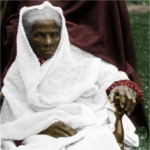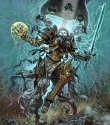steinrokkan posted:The idea that only 20 million people died in China and Manchuria during the Second Sino-Japanese war is quite optimistic. Historians generally agree on a 15-20 million range of people dying in China in WW2, about half of them due to famine and disease.
|
|
|
|
|

|
| # ? Jun 10, 2024 20:18 |
|
We should be happy that ww2 happened. Because it flushed the lion`s share of fascist tendendcies in europe. If it for some reason never happened pretty much every goverment in europe would be doing the whole national-socialists thing. The jews also got a lot of sympathy afterwards and racism and antisemitism got seriously discredited in a way they never would have without ww2. Despite the immense losss of life, the holocaust etc it was worth it. We should in fact be thankful that ww2 occured. Hitler was a bad dude, but despite his every intention he helped create a much better world than what could have existed had he not done his awful work.
|
|
|
|
Effectronica posted:Historians generally agree on a 15-20 million range of people dying in China in WW2, about half of them due to famine and disease. There were at least 10M military losses to the National front. Then we have some number over 20M of civilian casualties caused by the war (including the whole period since limiting this conflict to 1939-1945 makes little sense). This number is hard to verify, and I will admit the combination of military and directly caused civilian casualties reaching 30M is likely the highest estimate, but I'm going to say that it makes sense because the pacification campaign included the redirecting / withdrawing of food in occupied areas based on commander discretion, so famine casualties are difficult to separate from deliberate acts of war.
|
|
|
|
Woolie Wool posted:It pisses me off that not only did we promise Unit 731 leaders amnesty if they shared their research with us, we actually gave it to them. If you're going to cut such an odious deal, at least do the decent thing and break it once they've given you what you want. America values its word as long as you're useful. Baudolino posted:We should be happy that ww2 happened. Because it flushed the lion`s share of fascist tendendcies in europe. If it for some reason never happened pretty much every goverment in europe would be doing the whole national-socialists thing. This post is antisemitic. Before the war, Poland was engaged in a decolonialist foreign policy which supported the founding of a Jewish state in Israel. To achieve this end, they were engaged in a program of arming and training Jewish nationalists. Israel could have been achieved from the tireless efforts of Betar without the war; to claim the holocaust was necessary for Israel is a christian, and not Jewish, value. My Imaginary GF fucked around with this message at 01:58 on Dec 13, 2015 |
|
|
steinrokkan posted:There were at least 10M military losses to the National front. Then we have some number over 20M of civilian casualties caused by the war (including the whole period since limiting this conflict to 1939-1945 makes little sense). This number is hard to verify, and I will admit the combination of military and directly caused civilian casualties reaching 30M is likely the highest estimate, but I'm going to say that it makes sense because the pacification campaign included the redirecting / withdrawing of food in occupied areas based on commander discretion, so famine casualties are difficult to separate from deliberate acts of war. Nope, that's 15-20 million total, including military casualties. The official PRC statistics are 20 million dead for the whole of the war. 35 million is the casualty estimate, including the severely wounded.
|
|
|
|
|
My Imaginary GF posted:America values its word as long as you're useful. I never said that ww2 was necessary for Israel nor did i say that the creation of Israel was a good or bad thing ( lots of People would disagree). Merely that it served to discredit antisemitism everywhere.
|
|
|
|
So even if it was a more conservative 20M, what does it change about the fact that the popular focus on Unit 731 and Nanking has been part of obscuring the true scope and nature of Japanese war crimes (which were by no means limited to China). It's comparable to if the coverage of Nazi atrocities never progressed past the first battle of Warsaw. Sorry for my rambling, I just loving hate this period's Japan.
|
|
|
|
The deeds of unit 731 are pretty nauseating to read about, and the whole colonial china period is mental. It's all very flippant and haphazard
|
|
|
|
steinrokkan posted:Austerity comes from the fact that if a creditor keeps lending money to somebody who blatantly refuses to pay back, they will eventually stop. Luckily for Europe America was smarter than this and didn't expect the Marshall Plan to be paid back, because we had a government that knew the national budget isn't the same as your local credit union's bookkeeping.
|
|
|
|
20 million dead Chinese is the low estimate, 30 million is the high estimate. Civilian deaths are estimated to be 17-22 million, Nationalist + Communist military casualties are estimated to be about 4 million , with about 1 million casualties of collaborators and militia/police working for Japan. China's population during this time period was about 500 million people.
Sergg fucked around with this message at 14:03 on Dec 13, 2015 |
|
|
|
VitalSigns posted:Luckily for Europe America was smarter than this and didn't expect the Marshall Plan to be paid back, because we had a government that knew the national budget isn't the same as your local credit union's bookkeeping. America provided most of its Marshall aid through grant programmes invoiced to the US government and delivered as goods and services, not through loans deposited to accounts of independent governments. Which meant that Marshall Plan, especially in Germany, wasn't and couldn't be used to combat what would nowadays be called austerity.
|
|
|
|
LeoMarr posted:So why enact a 2 year draft and raise a 5 million strong army so rapidly that your officer corps suffers if you plan to crush your enemy after those forces are released in 1941? Because the Soviet Union engaged in several wars and other military actions between 1939 and 1941, and because having more people in the military is helpful for reorganization, training, and building a strong officer's corps. Yes, it's expensive, but the Red Army had a serious lack of experienced soldiers that was only made even worse by the Purges, and the partial mobilization would have been good for getting a few million people some basic training and experience so that they could have formed the core of a second, much larger draft a couple of years later which would have been intended for war with Germany. Why were they at the border? Because both domestic and foreign intelligence officials were shouting "Hitler is going to invade soon" at Stalin, so even though he didn't believe them, he felt it was prudent to put a bunch of those troops on the border just in case, even though they were in no way sufficient or ready to seriously challenge the Wehrmacht - as events soon demonstrated. Effectronica posted:Denazification on the part of the Allies only lasted until 1950 in the West, being very generous. Students in the streets in 1968 would have been toddlers when it was over. Official government marginalization of ex-Nazi members ended, but there were still anti-Nazi government policies and laws, and Germany still stuck to the narrative of Nazis as villains who forced Germany to commit undeniable and historic crimes. No one was losing their job for a Nazi past in 1968, but the social effects were still enough that people had to tell their kids that the Nazis were villains they didn't follow willingly, and there was no denying their crimes. Compared to Japanese WWII revisionism, the difference is significant.
|
|
|
|
Let's talk about Spain, Portugal and WWII. Of course 1939 was the end of the Spanish Civil War, which saw Franco take power, not to be relinquished until his death in 1975. Franco's Spain owed a war debt to Nazi Germany and Facist Italy. Portugal was another authoritarian government, but one that was nonetheless friendly towards England. In the closing days of the Spanish civil war, Spain and Portugal signed the Pacto Iberico, swearing to defend the Iberian peninsula against all invaders. At the outset of war, Portugal claimed that the Anglo-Portuguese alliance was still in force, but that England declined the help of Portugal and so they stayed neutral throughout the war. The elephant in the room was British Gibraltar, which guaranteed the allies access to the Mediterranean. Germany had lots of plans that involved an attack on Gibraltar, either in Spanish concert or by first bulling through Spain. England allowed Portugal to stay neutral to influence Spain to stay neutral as well. Of course as you know, Spain never entered the war and Gibraltar is still in English hands. There is an awful lot of hearsay about what actually happened, including the "3 or 4 teeth" meeting at Hendaye between Hitler and Franco. Essentially, in October 1940, Hitler and Franco met at a train station on the Atlantic French-Spanish border, Franco asked for too much to join the war and a few days afterwards, Hitler reportedly said to Mussolini that he would rather have 3 or 4 of his teeth pulled than speak to Franco again. Hitler tried to work through Mussolini after that point, but in spite of Spain being a non-aggressor, Franco openly preferred the Axis powers and traded with them. Portugal's dictator Antonio Salazar remained very friendly to the English. He received an honorary doctorate from Oxford in 1940 and meanwhile Portugal became a place for many refugees to escape the Nazis. Nonetheless they adhered to strict neutrality until much later in the war, when e.g. the Azores were allowed to be used by the US as a military staging point in 1943. This neutrality was to make sure that Spain had limited benefit to joining the Axis. The question I'd like to debate is, How much pushing was really needed for Franco to stay out of WWII? Was he really always on the brink of giving himself "heart and soul" to the Axis powers or was he really just happy to consolidate power over the Basques and Catalans and many build ties with Vichy France?
|
|
|
|
Skeesix posted:The question I'd like to debate is, How much pushing was really needed for Franco to stay out of WWII? Was he really always on the brink of giving himself "heart and soul" to the Axis powers or was he really just happy to consolidate power over the Basques and Catalans and many build ties with Vichy France? Honestly, Franco probably never was on a "edge" of joining the Axis, while he was sympathetic ideologically speaking, he had just just won the civil war in 1939 and the country was about as disunited as it could get. The was still an active resistance until the 1950s, and while they never actually threatened the regime, Franco had more than enough cut out for himself back home. Joining the war would have been a giant mistake that not only would have threatened his regime but wouldn't offer any real benefits. It was much smarter to hedge his bets, by being friendly to the Axis (and allowing Spanish volunteers to fight) that put himself at risk for what was ultimately a pointless fight (from his perspective).
|
|
|
|
steinrokkan posted:America provided most of its Marshall aid through grant programmes invoiced to the US government and delivered as goods and services, not through loans deposited to accounts of independent governments. Which meant that Marshall Plan, especially in Germany, wasn't and couldn't be used to combat what would nowadays be called austerity. What. This doesn't make any sense. Whether you spend the money on goods and services which you then provide, or whether you give other governments the money and they spend it on goods and services, it's still the same thing. How is one of those austerity and one of them not. It's also wrong, because money was provided to the governments of Western European nations although at first most of it was spent buying materials from the US since it was one of the few countries whose industry wasn't destroyed by war, but as time went on a greater proportion of it was invested into rebuilding the industrial base of Western European countries.
|
|
|
|
VitalSigns posted:What. In one case the donor government retains the ability to censor the recipient's spending by actually delegating the spending on its own agency, in the other the recipient government has the discretion to spend money on stuff like welfare transfers, social security and other things that have been the centerpiece of the austerity debate in recent years. Ultimately the former model helps national welfare, obviously, but that's actually exactly what austerity proponents have been saying all along (i.e. instead of providing no-strings-attached loans, enforce structural reform, which is just a fancy word for telling the recipient country what they can and can't spend money on, just like in the case of the post-WWII grants). quote:It's also wrong, because money was provided to the governments of Western European nations although at first most of it was spent buying materials from the US since it was one of the few countries whose industry wasn't destroyed by war, but as time went on a greater proportion of it was invested into rebuilding the industrial base of Western European countries. steinrokkan fucked around with this message at 19:06 on Dec 13, 2015 |
|
|
|
steinrokkan's boner for Senpai EU and how the filthy peripherals are ruining his pan-european wet dream is worse than the dude who is quoting Surorov, at least Surorov is mildly related to WW2Skeesix posted:Let's talk about Spain, Portugal and WWII. Of course 1939 was the end of the Spanish Civil War, which saw Franco take power, not to be relinquished until his death in 1975. Franco's Spain owed a war debt to Nazi Germany and Facist Italy. Portugal was another authoritarian government, but one that was nonetheless friendly towards England. In the closing days of the Spanish civil war, Spain and Portugal signed the Pacto Iberico, swearing to defend the Iberian peninsula against all invaders. At the outset of war, Portugal claimed that the Anglo-Portuguese alliance was still in force, but that England declined the help of Portugal and so they stayed neutral throughout the war. Portugal traded with Germany until the bitter end and the death of Hitler resulted in a national grieving for several days. And while indeed we did receive a lot of refugees we also sent back a lot of them who couldn't afford to bribe our government. The main reason we ended up accepting a lot of refugees were because way too many Portuguese went above their orders and saved as many people as they could, at great personal risk. The Portuguese government, as is characteristic of every Portuguese government before and after (ignoring 1910-1914 and 1974-76) acted in a silently, cowardly and collaborationist fashion as long as they could. https://en.wikipedia.org/wiki/Aristides_de_Sousa_Mendes
|
|
|
|
Mans posted:steinrokkan's boner for Senpai EU and how the filthy peripherals are ruining his pan-european wet dream is worse than the dude who is quoting Surorov, at least Surorov is mildly related to WW2 Oh okay, that explains the whacko definition of austerity as "keeping the shiftless lazy races from wheedling money from the lands of the superman" rather than anything to do with government spending or investment in the economy or even the understanding that austerity is something that countries can and do impose on themselves, nevermind.
|
|
|
|
Mans posted:The thing about Portugal is that letting Spain join the Axis would force Portugal to make a factual decision, which would be 1)joining the Axis and saying permanent goodbye to their colonies and Azores or 2)refusing to join the Axis and see poor Salazar and his military dictatorship lose power, which would be unnaceptable to the Portuguese, obviously. There's an argument that Salazar helped a lot in convincing Franco to stay out of the war, although as dumb as Franco was i assume he was smarter than to jump in the fire that Mussolini and Hitler started. Yeah, in reading over the stuff about Portugal and WWII while making this post, I got a very clear impression that (a) England clearly thought they were the cleverest bunch in the room making all the maneuvers to keep Spain out of the war and kissing Salazar's rear end to a "Rumsfeld with Hussein" extent and (b) Portugal itself probably was not much of an impediment to Spain joining the war. As you said, Franco was not eager to jump in the fire and Portugal had enough trouble holding onto its own colonies.
|
|
|
|
Incidentally! Since there's such a huge wealth of WW2 material out there, and so much of it has... variable quality, I think recommending things for other people to check out couldn't hurt. TELEVISION -If all you know about WW2 is its basic concepts, then you should ABSOLUTELY look into the 1972 documentary series, The World at War. In the space of 26 episodes it manages to cover the vast majority of the war's salient topics with respect, thoroughness, and even-handedness that's made it still one of if not THE best documentaries on the war, which is dramatically helped by its extensive series of interviews from participants and the legendary narration of Laurence Olivier. You can find the whole series on Youtube currently, though speaking as an owner of the DVD box set I'd recommend picking it up if you become interested in the war. -Another one you can find on Youtube but with much less dependability is Crusade in the Pacific, an American series on the Pacific Campaign and (eventually) the Korean War. While about two steps from raw propaganda, occasionally unfortunate in its commentary and often directing its story based on available footage rather than the other way around, I find this series fascinating because it was made in 1951, less than six years after war's end. There are very few comprehensive TV series that close to the date, and as a result Crusade benefits from its own extensive interviews and the exceptional narration of Westbrook Van Voorhis. BOOKS If there's an aspect of World War II that hasn't had a book written about it, I don't know what it is. Four that I can recommend right off the top of my head: -Shattered Sword is the definitive story of the Japanese side of the Battle of Midway and an extremely thorough look at the dysfunctionality of the Japanese military machine. This is the book everyone recommends. That's with good reason. It is also the only one I don't have personally, but I know I'd get yelled at if it wasn't on here. Someone else can explain in more detail why it deserves the spot. -Our Jungle Road to Tokyo is the autobiography of Robert L. Eichelberger, one of the lesser-known American generals tasked with the awful, thankless job of island-hopping up New Guinea and through the Southern Phillippines, usually well after the war had moved on. Eichelberger gives a thorough account of his view of the war, both as a general and as one frequently stuck in the frontlines of the Pacific jungle. He gives a solid account of his men and also of the early stages of the Japanese occupation, as this book was completed just before the outbreak of the Korean War. -Ghost Soldiers. Ghost Soldiers tells the story of the prison camp at Cabanatuan in the Philippines and the Army Ranger raid to free the prisoners held there, many of whom had been taken captive at Bataan. Ghost Soldiers is an exceptionally engrossing book, mostly thanks to its excellent writing, but partly thanks to its strategy of alternating chapters between the story of the raid and the story of the harrowing and hideous journey the prisoners took to get there. This isn't a story many people know nowadays since, like the capture of Rome, it was overshadowed by greater events elsewhere, but it's definitely one worth knowing. -Endgame: 1945 is a very interesting book, taking in the span of only four months. It covers the journey of a small number of people variously scattered throughout Central Europe during the last collapsing days of the Nazi Reich--and in the harrowing period that followed. Endgame is very careful to remind you that the war didn't end and everything magically stop because of the surrender and it's very thorough in exploring the consequences, not just for the world but for the individual people in it.
|
|
|
|
While we're on the subject of World War II books, I'm going to give my usual recommendation of A Writer at War by Vasily Grossman. I'm of the opinion that it is the best memoir written about the Eastern Front and one of the best of the entire war. It's formed out of a couple historians amalgamating together Grossman's war diaries and correspondent articles with historical context and covers everything from pre- to post-war. Grossman is a famous Soviet author and was a war correspondent for the Red Army newspaper, who covered a number of crucial battles and issues firsthand including the initial rout in front of Nazi forces, Stalingrad, Kursk and the liberation of Treblinka. Grossman was Jewish, so the Einsatzgruppen and death camps were particularly devastating in his coverage (his mother was trapped in Berdichev and died there during one of the massacres) but the bulk of the reporting is frontline stuff about combat and soldiers' lives. If you're at all interested in the Eastern Front and haven't read this book, you owe it to yourself to do so.
|
|
|
|
Another excellent documentary on Youtube is Soviet Storm, which is a fairly detailed production about the Eastern Front focused on the Soviet Union. Most english-language histories tend to glaze over the Eastern Front with the exception of a few key battles, so in many ways it's a fresh look at the single largest theater of the war. Check it out!Redeye Flight posted:-Shattered Sword is the definitive story of the Japanese side of the Battle of Midway and an extremely thorough look at the dysfunctionality of the Japanese military machine. This is the book everyone recommends. That's with good reason. It is also the only one I don't have personally, but I know I'd get yelled at if it wasn't on here. Someone else can explain in more detail why it deserves the spot. Shattered Sword is a great book, for a number of reasons. It's decently well-written, it's incredibly detailed, exhaustively researched, and approaches the battle from a fresh perspective-that of the Japanese-rather than going at it from the American perspective that everyone already knows. It also works to refute or explain a number of myths that have arisen from the battle, such as what the defining role of Torpedo 8 really was and the reality of the "Fatal Five Minutes". It's a thick book, but absolutely worth a read.
|
|
|
|
Redeye Flight posted:Incidentally! Since there's such a huge wealth of WW2 material out there, and so much of it has... variable quality, I think recommending things for other people to check out couldn't hurt. Seconding this, I watched a bunch of them the other day including the one about WW2 in Burma, which I knew next to nothing about.
|
|
|
|
While The World at War is an exceptional series and I recommend it at as well, I'll caution people that one area it gets a little uneven on is anything to do with the Soviet Union. This is due to it being filmed during the height of the Cold War and comes from a combination of sanitized Soviet source material and a couple of ex-pats who they feature as experts who, to put it politely, aren't quite as well versed in the things they describe as they think they are. The stuff on the Burma front, particular Wingate and the Chindits, is one of my favorite episodes as well.
|
|
|
|
I would be remiss, incidentally, if I didn't mention The Rise and Fall of the Third Reich, by William L. Shirer. Rise and Fall is kind of the keystone of modern pop history, and certainly of modern World War 2 pop history. As to what I mean by popular history, that can get vague. Generally it refers to books which focus on historical topics and use historical methods but rather than critical scholarly analysis focus on narrative, character, vivid descriptions--the hallmarks of pop fiction applied to history. This style can and does drive academic historians up the walls, but it's not one without value--Ghost Stories, which I've already lauded, falls firmly in the pop history category. Rise and Fall is a... flawed book. It features speculation, albeit clearly pointed out when so, which is something NO historian would ever put in a work. It also ascribes to the Sonderweg theory that Germany developed societally in a way that made her specially viable for totalitarianism/autocracy/etc., which is straight up horseshit and has been thoroughly condemned. Whenever the book starts talking about Martin Luther, skip to the next chapter. You'll thank me. There's also the unfortunate tone Shirer takes towards homosexuality. NOW. That said, Rise and Fall is not without merits. It features extensive use of captured Nazi internal documents, diaries, communications--Shirer had access to the bulk of it in the short window between it being moved out of deep storage in the US and returned to Germany, and he made the absolute most of it. It has extremely thorough coverage of the rise of the Nazi Party as a result, as well as inside views of certain other events like the Stauffenberg Bomb Plot we don't usually see. Shirer also had the somewhat unique position of being in Germany throughout the Weimar government AND the rise to power of Hitler right up into 1940, and offers what I still think is a fascinating viewpoint from inside as the the country calcifies. Take the book with a shaker of salt, but it's still a fascinating and enthralling piece of literature, a decent general overview of the history of Nazi Germany--and for better or worse, extremely important in the history of WWII history.
|
|
|
|
I see that the conversation has turned back towards books and TV shows. Early in this thread I had pointed out that I once saw a really good show on the Battle of France and everyone assumed it was for World at War, but I knew it wasn't. BUT, World at War led me to Battlefield, and BAM, the very first episode of season 1 is the episode I was looking for. I haven't watched the other episodes yet, but if they're anything like episode 1 they will make a great companion piece to World at War. https://www.youtube.com/watch?v=wbKYbLUkIpk
|
|
|
|
Some book recommendations: - After the Reich is a grim look into, well, what it says on the tin, what happened in Germany and the formerly conquered areas after Hitler shot himself. In my opinion the work does not attempt to elicit undue sympathy for the former Nazi slave masters, but reports what the locals, their governance, the Red Army and Soviet forces etc. launched on the surviving German populations. Horrible stuff all around. -The Last 100 Days by Toland is, again, what it says on the tin, an account of the last 100 days of the European theatre. Things are confused and disorganized by this point, and the chaos unfolding is told mainly (I think?, been a few years) from the point of view of people on the ground, trying to survive and accomplish whatever meager goals they have left. - Kershaw's The End chronicles roughly the last year of Nazi rule of Germany. It is a fascinating portrait of the, Kershaw argues almost unique, set of circumstances that lead to the situation where Germany was seemingly unable to act against Hitler, and more to the point why the clearly insane orders of Hitler, the Gauleiter and SS masters were so often obeyed and enacted. Note that this is a completely separate argument / analysis than the Sonderweg "theory" mentioned by REF. By the same token, Kershaw's biography of Hitler, Hubris and Nemesis is a very thorough look at the life and motivations of Adolf Hitler. - Atomic by Jim Baggott is a popular history overview of the nuclear programs of the four major players (US, UK, Nazi Germany and USSR), which looks at both the scientists' views and work and the administrative side. Somewhat related but not WW2-centric is the Pulitzer-prize-winning biography of Oppenheimer by Kai Bird and Martin Scherwin, American Prometheus, which paints a vivid picture of Oppenheimer as a troubled, somewhat tragic figure caught between his own scientific prowess and the ethical considerations of his work. Glosses over the physics in his life and focuses on the man. - Peter Longerich's The Holocaust is an exhaustive (and exhausting) account of the events in the Holocaust, chronicling the events and attempting to analyze the motivations of the various perpetrators. He has also written excellent biographies of leading Nazi figures. - The Wages of Destruction by Adam Tooze is a look into the economics of Nazi Germany, particularly in gearing up to and in wartime. He argues that the basic economic model of Nazism (plunder through conquest, slave labour, etc.) provided a mix that doomed the Nazi war aims from the start. A more contemporary analysis can be found in Neumann's Behemoth, the revised edition published in 1944 (!). Neumann presents a Marxist critique of the Nazi state and its economical structure, and his views were briefly considered for use in the Allied de-nazification of Germany. I apologize that this list is mostly non-military in composition, but I've always been more fascinated by the sociological, political and scientific events around the war rather than the actual warfare.
|
|
|
|
Let's talk code, since I spend the holidays being super-lazy and reading really bad alternate history novels in bed. How important was the breaking of the Enigma machine to the total war effort ? Could an unbreakable German code have had any impact on the outcome of WWII ? Can we roughly estimate how much time and how many lives were saved by being able to read German code ?
|
|
|
|
More important than either of those was all the tonnes of shipping saved on the Atlantic.
|
|
|
|
Has anyone ever read Herman Wouk's "The Winds of War" and "War and Remembrance"? I don't exactly recommend them, but it's something to do. They're that kind of insanely overlong historical fiction saga that follows one family who just happens to be involved in everything important in WW2. I enjoy reading them to get a bit of a perspective on what people's feelings about the war were during the Cold War years.
|
|
|
|
Redeye Flight posted:
was japanese damage control as bad as documnetaries has led me to belive?
|
|
|
|
Trench_Rat posted:was japanese damage control as bad as documnetaries has led me to belive? Yes. Yes it was. See Taiho on how to turn your state of the art carrier into a giant fuel-air bomb.
|
|
|
|
Trench_Rat posted:was japanese damage control as bad as documnetaries has led me to belive? I only read Spector's Eagle against the Sun and Toland's The Rising Sun as well as several smaller bits and pieces, which do not go into the finer details of naval doctrine. But I get the general impression that American crews usually had a basic mechanical understanding. Compared to the Japanese most US sailors knew how a gun worked and could drive a car, also they would not get smacked around by their officers if they said "Hey, can anyone else smell aircraft gasoline here ?", cause the glorious Emperor would never equip his majestic ships with a leaky fuel pipe. So doctrine and taking personal responsibility certainly had a lot to do with it, as well as that certain safety standards must already have been the norm in the highly industrialized US. Hammerstein fucked around with this message at 06:35 on Dec 26, 2015 |
|
|
|
Stuff like overcrowdedness, specialized firefighting units and lack of redundant systems helped seal the doom of the carriers at Midway. Aircraft were handled poorly, aircraft fuel even more so.
|
|
|
|
So aside from The World at War which has been mentioned does anyone know of some other good WW2 documentaries?
|
|
|
|
cheerfullydrab posted:Has anyone ever read Herman Wouk's "The Winds of War" and "War and Remembrance"? I don't exactly recommend them, but it's something to do. They're that kind of insanely overlong historical fiction saga that follows one family who just happens to be involved in everything important in WW2. I enjoy reading them to get a bit of a perspective on what people's feelings about the war were during the Cold War years. I read both, and I was just discussing the television series with my father. They're good books, very long. Wouk covers a lot of the feelings about the rise of Hitler, how Germans view him, how Jews view him, how Americans view both, etc. If I recall correctly there's even a fictitious German officer who has an essay in one of the books about the Wehrmacht's conflict between obeying orders and knowing Hitler leading them to ruin.
|
|
|
|
Hammerstein posted:Let's talk code, since I spend the holidays being super-lazy and reading really bad alternate history novels in bed. It was downright critical as far as being able to win the tonnage war against the German U-boats in the Atlantic. Theoretically the Allies could have prevailed over the U-boats via improved ASW technology, improved ASW doctrine, and just lots more escorts and other ASW forces, but breaking Enigma gave the Allies an edge in the time before April-May 1943 where they were still on the defensive, couldn't yet cover every convoy as well as they wanted and couldn't yet take the offensive against the U-boats.
|
|
|
|
The one place the Allies were the most tenuously in danger was always in the Atlantic. Without breaking Enigma the German submarines would have had a much easier time with hunting the British supply convoys. Whether it would have knocked Britain out of the war is debatable, but it still took years after the peace for Britain to come out of rationing and it was already pretty thin on the Isles. I doubt it would have convinced a surrender, but it could have greatly delayed a Normandy invasion and harmed the supply of Russia.
|
|
|
|
I have never understood how Germany never figured out that their code had been broken, or never really made a serious attempt at strengthening it "just in case". I know that they added a fourth wheel to Enigma, but they hardly used it and the Allies just continued on reading their codes. I know that the Allies took great pains to hide the fact that they had broken the code, but still, you would think that eventually the Germans would become suspicious since the Allies always seemed to have the jump on them for major campaigns. SpRahl posted:So aside from The World at War which has been mentioned does anyone know of some other good WW2 documentaries? As I said earlier (I'm assuming you just missed it) the Battlefield series seems to be a good companion series to World at War and is available on youtube.
|
|
|
|

|
| # ? Jun 10, 2024 20:18 |
|
Speaking of books does anyone know if Japan's American Interlude is any good?
|
|
|

























